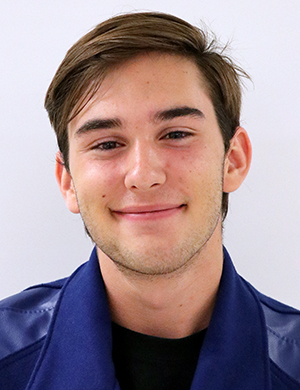Save Science – It Saved You!
Science in the modern day is undeniably fantastic. In schools across the nation, learning and discussing any topic of science falls into daily conversation in any age group, culture, or recordable demographic. From the simple breaths we take that metabolize the oxygen in our lungs, to the synapses in our brains when we make any decision, tell any lie, or remember any memory, humans live, breathe, and encourage science.
But science in schools and the intelligent discussion of facts, not fiction, is dwindling towards metaphorical extinction due to some people’s denial. This not only affects the scientists of this age, but the children/scientists of the future generations.
“[Science] means the world to me,” senior Julissa Hernandez said. “Getting to learn about the world I’ve lived in all my life, and how there are things coexisting with us that live entirely different than we do is fascinating to me.”
Blooming scientists are now in danger of being taught some fact as fiction, such as anthropogenic climate change. This widely known fact has mountains of research behind it, and yet it’s still being decided in Congress 1) whether or not it is real and 2) if we, as a nation, should do anything about it. Climate change is not some hoax perpetuated by the Chinese; it is a real catastrophe that we are already reaping the effects of.
“The scariest thing about climate change is that people think it’s a myth or made up,” Hernandez said. “We as a whole need to realize we are destroying the planet and shouldn’t try and ignore it anymore.”
Climate change cannot be stopped, but it can be slowed by changing our natures and using the many different forms of clean, renewable energy that scientists have put research towards specifically for this reason. In 1986, German particle physicist Gerhard Knies discovered that we could equip the Sahara desert to harness solar power which, after just a few hours, could power the entire world for a day. Still nothing has been done to utilize this discovery.
“We should teach about more [climate change] in school and not as a fairy tale,” Hernandez said. “We should bring forth ways to help or even reduce the damage that’s been caused over the years.”
Science is going to be with us no matter where we will go. Colonizing space and finally discovering what is at the bottom of our oceans are only a hop, skip, and a jump away. We will need the discussion of science to be intelligent, factual, and intriguing to the next generation.
“[Future scientists] will have a different mindset that will either enhance the science we use now, or invent a whole new way of thinking about it,” Hernandez said. “[Anyone] can see the deeper meaning behind the things people take for granted.”

I'm a senior who has been on staff for two years, though I did work for the yearbook before then. I'm the Editor-in-Chief of the newspaper and Copy Editor...